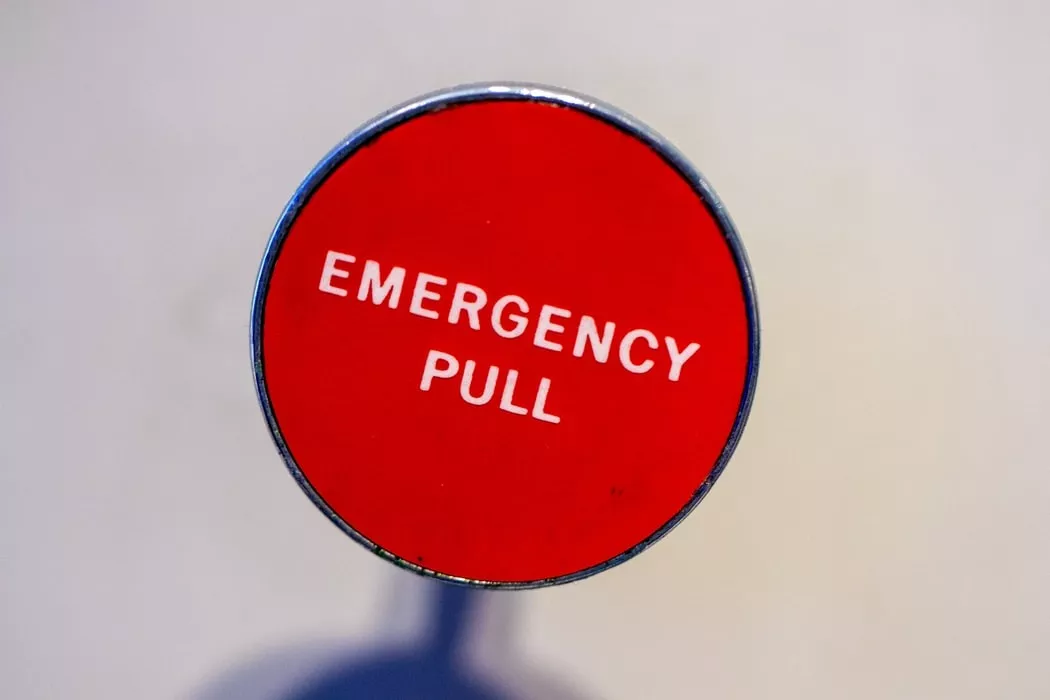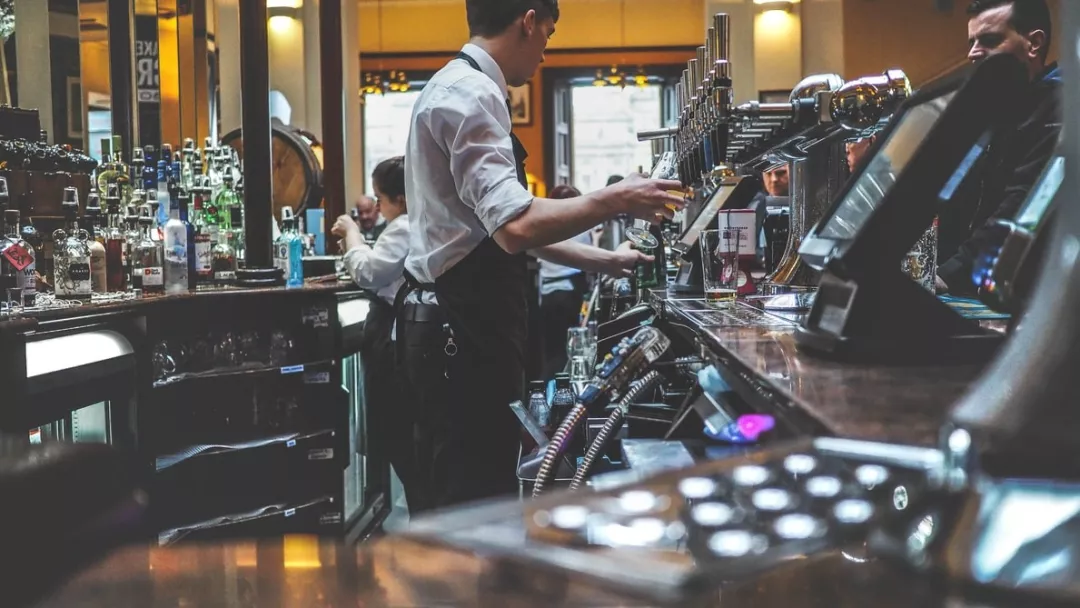Curated by Alibaba Business School
Source: Hupan University
The sudden outbreak has caused a halt to socio-economic development, and had a significant impact on offline service industries such as catering, tourism and retail, all which highly rely on cash flow. How important is cash flow? How should entrepreneurs choose in the face of various emergency measures? What are the key aspects of entrepreneurial leadership in these critical times?
We interviewed Liu Xiaodan, founder of Chen Yi Invest M&A expert, and lecturer of Question: to get the answers.
Question:This epidemic crisis was sudden and unforeseen. Many start-ups have never encountered such a sudden crisis in the past. What advice do have for founders during these extraordinary times?
Liu Xiaodan: When the crisis suddenly comes, entrepreneurs should manage their own emotions first. In the face of complicated situations and excessive noises, it is critical to judge calmly and think rationally. This is an important premise. The hot news on social media changes every day, and plenty more information is bombarding you, mixed with both fake and real news. Entrepreneurs must figure out how first how to calm down and make the proper assessments.
My suggestion is in this case is, as an entrepreneur, it is better to weigh on the pessimistic side than optimistic one.
The so called pessimistic judgement requires us to be a cautious optimist to believe that the crisis will surely pass, but it may take some time. Therefore, we should be prepared for a potential protracted war and not take any chances. For example, let’s say an expert said the epidemic will end within a month. If you only prepare according to this one month, you will be in mess if the turning point doesn’t come. Only when we have a correct attitude and are cautiously optimistic can you be truly prepared for a crisis.
A crisis is often the time to test leadership. Under the premise of rational thinking and calm judgement, two core things for entrepreneurs are:
First, try every means to survive. When everyone is in trouble, it depends on whether you can hold on and survive longer than others.
Second, there are always opportunities among the crisis. Entrepreneurs need to think about where you can find these new opportunities. Perhaps your peers and competitors are not as resilient as you are. If so, what new market opportunities do you have to fight for? Is there any new talent you can store up? A crisis is never easy for anyone. Some people may not be able to make it. It’s an opportunity for those who can survive.
For instance, as someone in mergers and acquisitions, I was recently wondering whether the epidemic would affect the mindset of entrepreneurs. What changes would result in the criteria for those enterprises in difficulties to choose investors and partners? Would those who used to do alone consider cooperating with others?
In a word, when the crisis comes, we should first ensure our survival and then see if there is any chance for further expansion. And if so, we should prepare right now.
Question: From an investment and M&A perspective, which industries do you see opportunities?
Liu Xiaodan: The investment is still going to the same industries. For example, although offline stores and restaurants have been impacted significantly, investors are still looking at these sectors. Healthcare as an industry has benefited from this crisis which has created new opportunities. Although I sense anxiety in the investors, most of them have already been in active again.

I believegood companies will ultimately survive even if there may be temporary cash flow issues. On the other hand, companies that are not competitive will die sooner or later.
Question: How do you define “good” companies? Did you see any good companies emerging in this crisis?
Liu Xiaodan: Good companies not only shine in a crisis, they will stand out. However, this is only the result of all the hard work they have put in their company. We need to take a long term view at a company. Good companies should not be judged on their performance on one or two occasions.
Good companies have always been there and the same for good entrepreneurs. It’s just that the crisis has offered them the opportunity to stand out. Entrepreneurs don’t change overnight. If an entrepreneur has a crisis mindset, he or she would always be mindful of potential crisis. Vice versa, an entrepreneur lacking crisis mindset will quickly forget about what happened in this crisis. The advice hopefully will echo with everyone.
Question: Cash flow became a key obstacle for most companies in this crisis. How should entrepreneurs take a holistic approach to cash flow management?
Liu Xiaodan: We always say cash flow the lifeline of businesses. The business can be losing money but cash flow must be healthy. Although this is something that we all recognize, it is still not something entrepreneurs necessarily focus on when everything’s is going well. This crisis experience may teach everyone an important lesson about cash flow.
To ensure healthy cash flow, you can either reduce your outflow or increase your inflow.
Cutting costs is to reduce operating costs. Needless to say, under the crisis, companies must do everything possible to reduce costs.
There are two ways to increase income. The first is to broaden the source of income. For example, the income that you did not really care about before must now be taken into consideration. In the past, you may care more about profit margins. But now cash flow is more important.
The second is to seek for support, apply for a loan or do equity financing. Some entrepreneurs turn to old shareholders. I think it is a very wise choice, because old shareholders know enough about you. It’s actually expensive to reach out to new investors and establish a relationship of mutual trust.
No matter what plan is adopted, the core is to have a clear predictability of your cash flow situation, and to especially be ready in case things go wrong. The reminder is that even if you still have money on your account, you should start the external process early. Better over prepared than unprepared.
Question:Now that the government is continuously unveiling policies, banks and various investment institutions are providing all kinds of financing methods, including providing loans, equity financing or convertible bonds. How should the entrepreneurs reasonably assess and choose these options?
Liu Xiaodan: This has to be considered from two perspectives: First, think clearly about the capital structure, whether you seek debt, shares, or convertible bonds.
In this regard, the CEO must do some math according to the company’s equity structure and business situation. The key question behind this is: Will the founders be willing to dilute their equity in exchange for funds?
If you estimate that in the future, you can directly use operating cash flow to repay the loan, then only short-term loan is needed; if the operating cash flow is not enough to repay the loan, or there is a lot of pressure, equity financing should be considered. Convertible bonds are a balance between the two. If you feel that the conversion price is too low, you can see if you can use a low-interest or even no-interest bond first. You decision on whether to use convertible bonds depends on the situation in the future.
These methods can also be used together, which essentially depends on your control of cash flow.
Second, we must consider the scale and pace of financing.This also requires the founder or CEO to figure out his own ledger. How much does it cost? Is it one-off or batch-wise? Entrepreneurs do not need to be overstressed that the more money the better. They can consider phased financing. When will the first payment be received? Will the second payment be necessary? What is the overall pace? At the same time, they need to calculate the financing scale based on business needs and cash flow conditions.
Question: Offline services such as catering are facing serious cash flow issues this time, from the perspective of capital structure or capital reserve, what lessons can be learned?
Liu Xiaodan: If the business is temporarily stopped, many companies will not be able to survive for three months, because there are many fixed costs. I think the first lesson is to make yourself bigger and stronger as much as possible.
When the crisis comes, although large enterprises have higher costs and greater pressure, they have stronger capability, with influential brands, teams, and core competitiveness. Many people will naturally come to help. But for small businesses it’s more difficult. Without a recognized brand and management to catch up, often times they can only rely on themselves.

The second lesson is that we must expand the channels for raising capital. For example, going public can be an option. Companies can issue financial instruments with strong liquidity through the capital market, to have sufficient cash reserves.
To enterprises, no matter the epidemic or other “black swan” incidents, the key to survive is that when the storm is approaching, the enterprise needs to have strong resistance to strike.
From the perspective of capital, we must diversify our capital raising channels. When the days are good, you can’t see changes. When the days are bad, you need to help yourself in different ways, to have a thicker cushion when your business is falling down. I believe entrepreneurs recognize that change is the only constant.
Question: From another perspective, how much cash in one’s account is necessary to make a company feel secure? After this crisis, some entrepreneurs may become conservative in reserving cash. What advice do you have for them?
Liu Xiaodan: There is no standard answer for this, because industries are different, as are companies. It depends on the company’s health and whether its financial channels are diverse and healthy. Relentlessly reserving cash will also bring in low efficiency of capital use.
After all, companies need to be profitable. This is always a balance. You must have a sense of crisis and be ready for it. The key is to pay attention to the cash flow of operations. If it has been negative for a long time and a large amount of debts have been raised, the situation will be very dangerous. And it will be more dangerous for companies that don’t pay attention to their daily cash flow, only relying on borrowing money to fix their cash deficit.
Question: In response to the crisis, what mistakes do founders make when facing the issue of cash flow? What tips do you have?
Liu Xiaodan: First of all, in difficult times, if the enterprise is to be refinanced, the valuation of the enterprise likely to be reduced. The founders should avoid this, because of their personal anxieties, accepting some unequal terms that may affect the operation and corporate governance of the enterprise in the future. Secondly, at this time, founders should pay special attention to selecting investors and partners who really understand the enterprise and are willing to cooperate with the enterprise for a long time. Keep away from those who are eager for quick success and instant profit.
Of course, in the face of the life and death of enterprises, the founders have to be decisive. If this financing can’t be obtained, the enterprise can’t make profits in a short period of time, and it will be more difficult. In this case, the enterprise’s valuation should also be lowered.
Why talk about leadership in a crisis? Because one of the most important leadership traits is decisiveness. The projects that should be stopped must be stopped, and only the most important business should be kept. Those who are indecisive are the ones who are most likely not able to survive in the crisis. People of this character generally can’t survive the crisis.
Question: After the crisis, when founders review their business, which areas would you suggest they focus on?
Liu Xiaodan: it’s easy for us to think about how we overcome difficulties and seize opportunities. But I still want to emphasize that in the crisis, we need to return to strategy and people. It is a challenge for leadership in the crisis. Whether it’s stop loss or the expansion of new business, we should focus on the thinking and implementation of strategy, to review your strategic execution and organizational ability.
A few days ago, I saw an article written by you (Hupan Univeristy) recalling Alibaba’s “SARS”. There is a story that moved me: During the quarantine period, when the father of the employee answers the phone, the first sentence is:” Hello, this is Alibaba. “
How is this done? We all work at home during this period of time. It’s really not easy to do this like Alibaba.The spirit of employees is not trained at this moment, it must be done before any of this happens. In fact, this is a reflection of the enterprise’s fighting spirit, and also a test of the basic skills of the enterprise.
Entrepreneurship is like living on the edge. The spirit of self-driving and self-changing of entrepreneurs should be in their blood. Some people have strong self-driving force. Even if they don’t encounter a big crisis, the small setbacks they encounter will also push them to think and change. They keep moving forward, so that they can reach their destination.
Alibaba Business School’s vision is to empower entrepreneurs, women and youth globally through the education and training programs on the digital economy and the benefits it brings to larger society.

